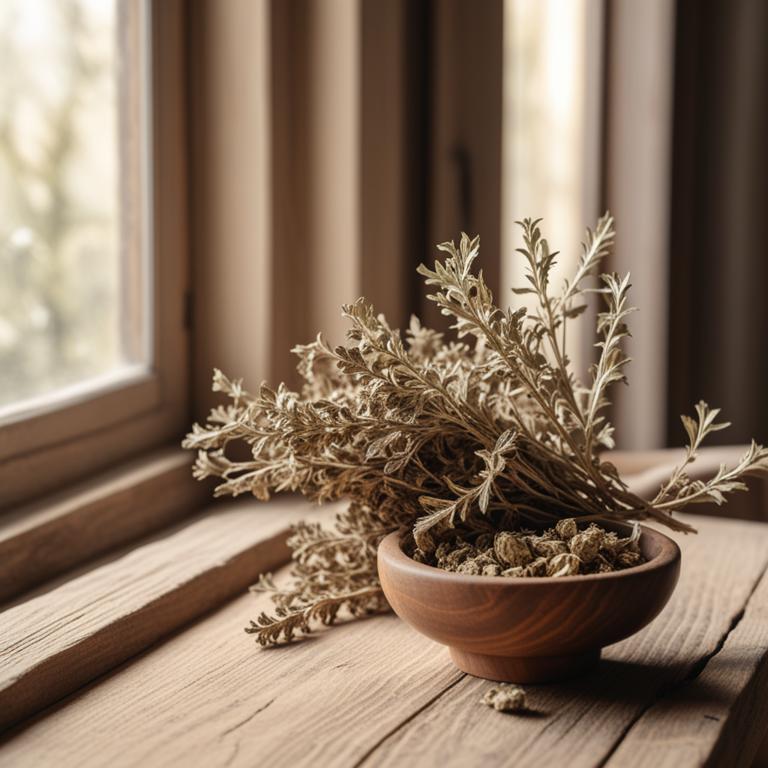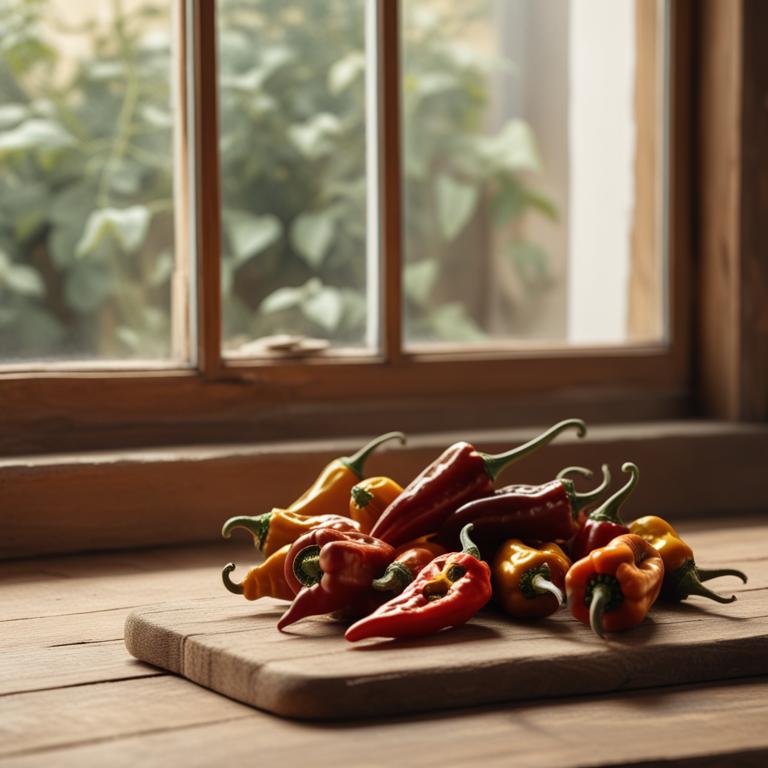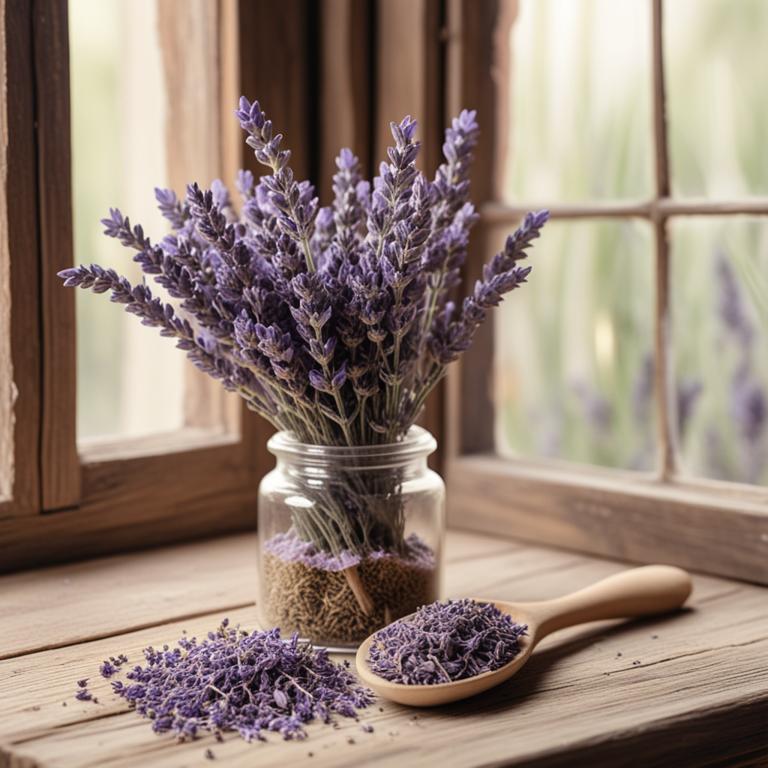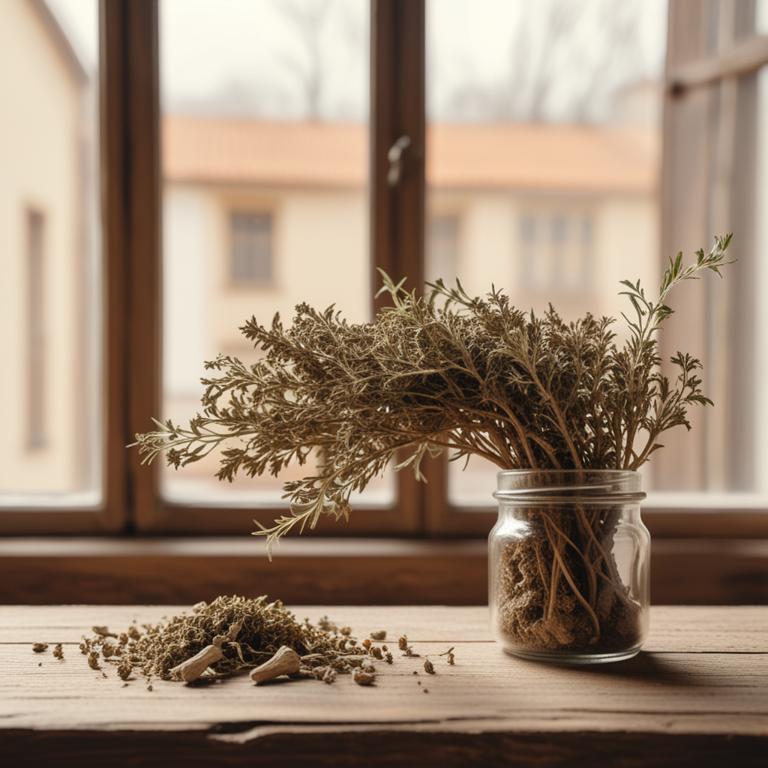Updated: Nov 30, 2024
10 Herbal Creams For Arthritis
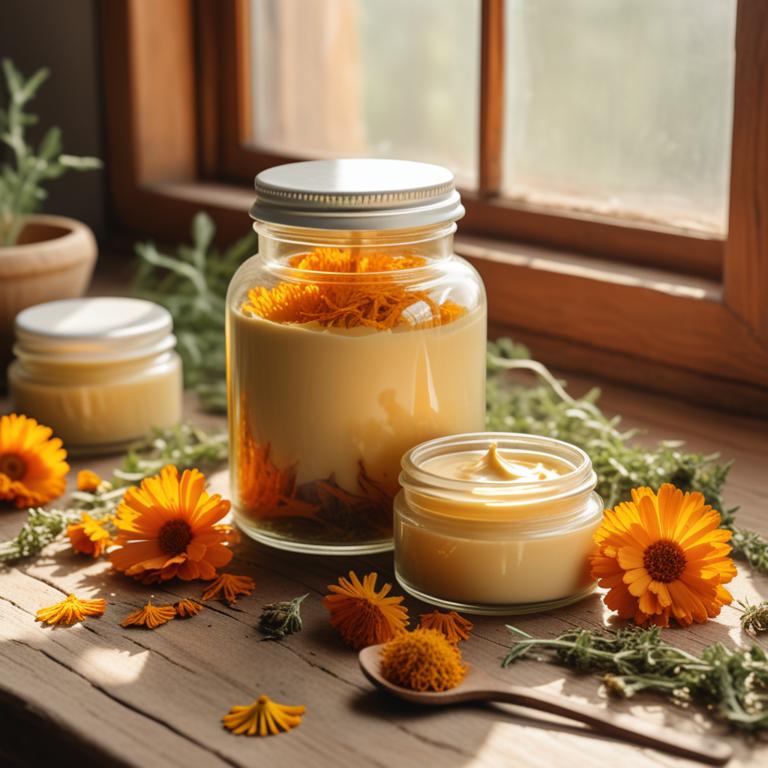
Herbal creams for arthritis are gaining popularity as a natural way to relieve joint pain and inflammation.
These creams work by penetrating deep into the skin and delivering anti-inflammatory compounds directly to the affected area. This is especially beneficial for people who can't tolerate oral medications or want to avoid harsh chemicals. Herbal teas, on the other hand, relieve arthritis by reducing inflammation and promoting relaxation. When you drink an herbal tea, the active compounds are absorbed into your bloodstream and can target the root cause of arthritis. The three herbs I want to highlight are Curcuma longa (turmeric), Glycyrrhiza glabra (licorice root), and Zingiber officinale (ginger). Turmeric contains a powerful compound called curcumin, which has potent anti-inflammatory and antioxidant properties.
Licorice root has anti-inflammatory compounds called glycyrrhizin, which can reduce swelling and pain. Ginger, on the other hand, has anti-inflammatory compounds called gingerols, which can reduce pain and stiffness. Using herbal creams or teas for arthritis can bring several benefits to your life. For one, you can avoid the harsh side effects of oral medications, such as stomach upset or allergic reactions. Additionally, herbal creams and teas can be more cost-effective and convenient than prescription medications. They can also be used in conjunction with other treatments, such as physical therapy or exercise, to enhance their effectiveness.
By incorporating herbal creams or teas into your arthritis management plan, you can take a more natural and holistic approach to managing your symptoms and improving your quality of life.
This article explains in detail what are the best herbal teas for arthritis and wh.
Also, you may be interested in...
Today Free Bonus!
The Ultimate Herb Drying Checklist
(For Long-Lasting Powerful Medicinal Effect)
How to easily dry herbs that don't mold and that keep their strong medicinal power for more than 1 year.
Table of Contents
1. Curcuma longa
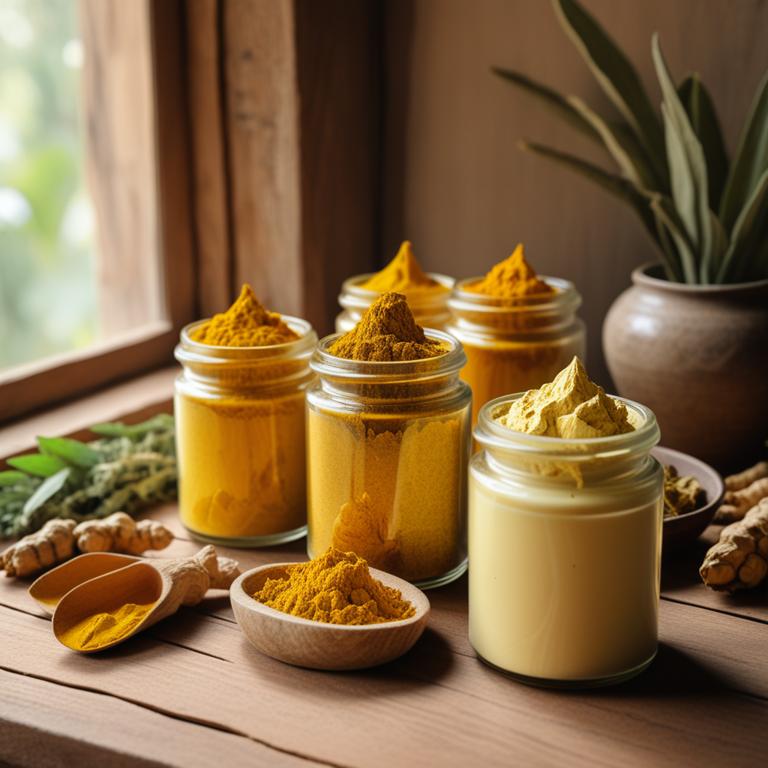
Curcuma longa creams contains a bioactive compound called curcumin.
Curcumin has potent anti-inflammatory and antioxidant properties that help reduce joint pain and swelling associated with arthritis. The compound also has a natural ability to inhibit the production of pro-inflammatory enzymes, which contribute to the progression of arthritis. Additionally, curcumin has been shown to promote the repair and regeneration of damaged tissues in the joints.
The combination of these properties makes Curcuma longa creams a potential treatment option for people suffering from arthritis.
- Gather 1 cup of coconut oil, 1/2 cup of beeswax, and 2 tablespoons of turmeric powder in a double boiler.
- Melt the coconut oil and beeswax in the double boiler over low heat.
- Add the turmeric powder to the melted oil and wax mixture and stir well.
- Remove the mixture from heat and let it cool until it reaches 120°F to 130°F.
- Pour the mixture into a container and let it cool and solidify before applying it to the affected area.
2. Glycyrrhiza glabra
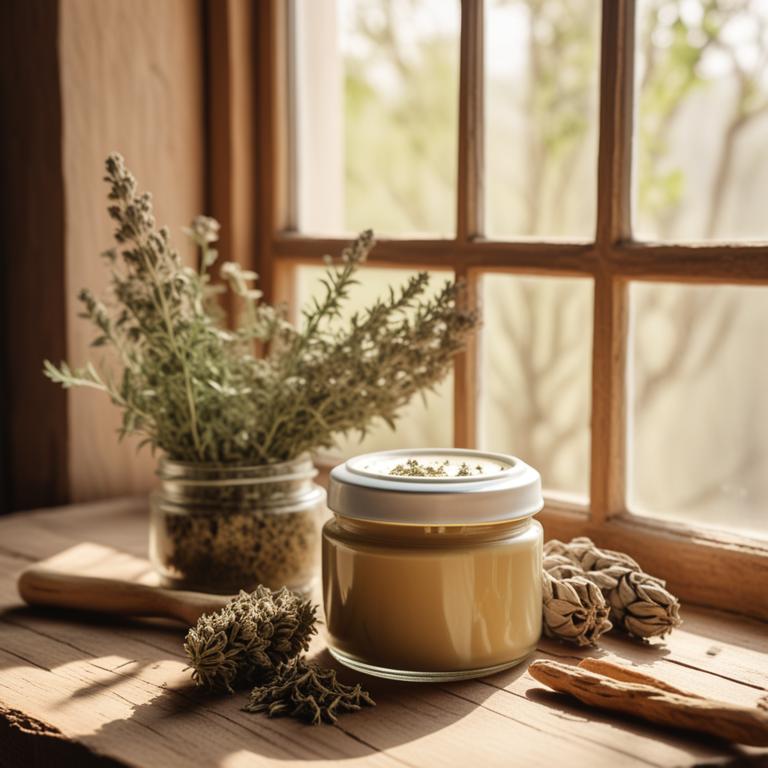
Glycyrrhiza glabra creams contains the bioactive constituents glycyrrhizin and flavonoids.
These compounds have anti-inflammatory and antioxidant properties, which can help reduce inflammation and pain associated with arthritis. Glycyrrhizin, in particular, has been shown to inhibit the activity of enzymes that break down cartilage, helping to preserve joint health. Flavonoids, on the other hand, have antioxidant properties that can help reduce oxidative stress and promote healing in the joints.
By reducing inflammation and promoting joint health, Glycyrrhiza glabra creams may be beneficial for people with arthritis.
- Mix 1 cup of distilled water and 2 tablespoons of glycerin in a small saucepan. Heat the mixture over low heat until the glycerin dissolves.
- Add 2 tablespoons of dried Glycyrrhiza glabra root powder to the mixture. Stir well to combine.
- Remove the saucepan from heat and let it cool. Strain the mixture through a cheesecloth or a fine-mesh sieve into a clean bowl.
- Add 1/4 cup of a carrier oil like coconut or olive oil to the mixture. Stir well to combine.
- Pour the mixture into a clean container and store it in the refrigerator. Apply the cream as needed to help relieve arthritis symptoms.
3. Zingiber officinale
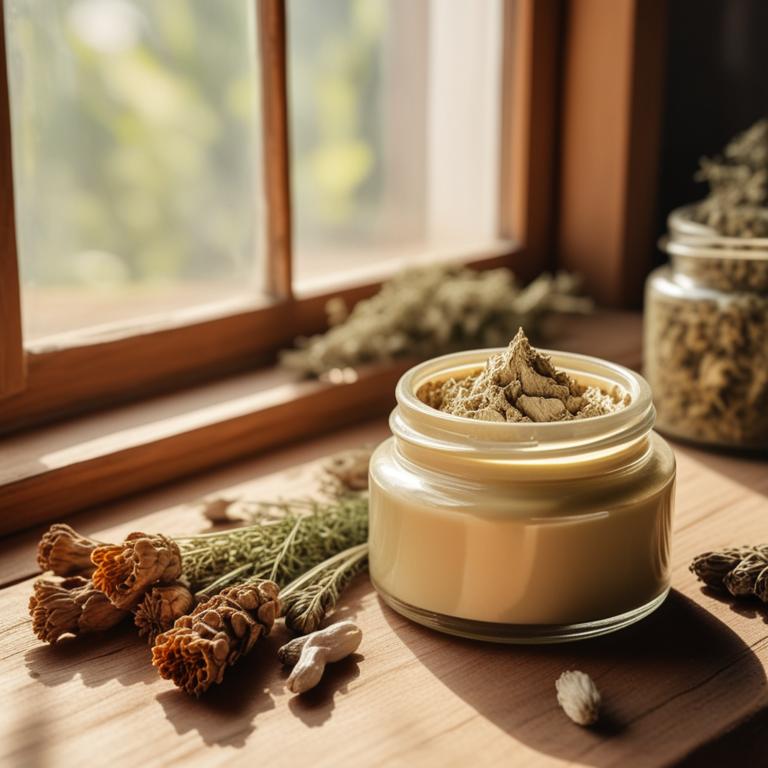
Zingiber officinale creams contains active constituents like gingerols and shogaols, which have anti-inflammatory properties.
These compounds help to reduce pain and swelling in the joints, making it a popular remedy for arthritis. The anti-inflammatory properties of gingerols and shogaols also help to reduce the production of pro-inflammatory cytokines, which contribute to joint damage and pain. Additionally, the bioactive compounds in Zingiber officinale creams have antioxidant properties, which help to protect the joints from oxidative stress and damage.
By reducing inflammation and oxidative stress, Zingiber officinale creams may help to alleviate symptoms of arthritis and improve joint health.
- Gather 1 cup of coconut oil, 1/2 cup of beeswax, 2 tablespoons of ginger root powder, and 2 tablespoons of shea butter.
- Melt the coconut oil and beeswax in a double boiler or a heat-proof bowl set over a pot of simmering water.
- Remove the melted mixture from heat and stir in the ginger root powder and shea butter until well combined.
- Pour the mixture into small containers or a larger container to cool and solidify.
- Once the mixture has solidified, label and store the Zingiber officinale creams in a cool, dry place for up to 2 months.
4. Aloe barbadensis
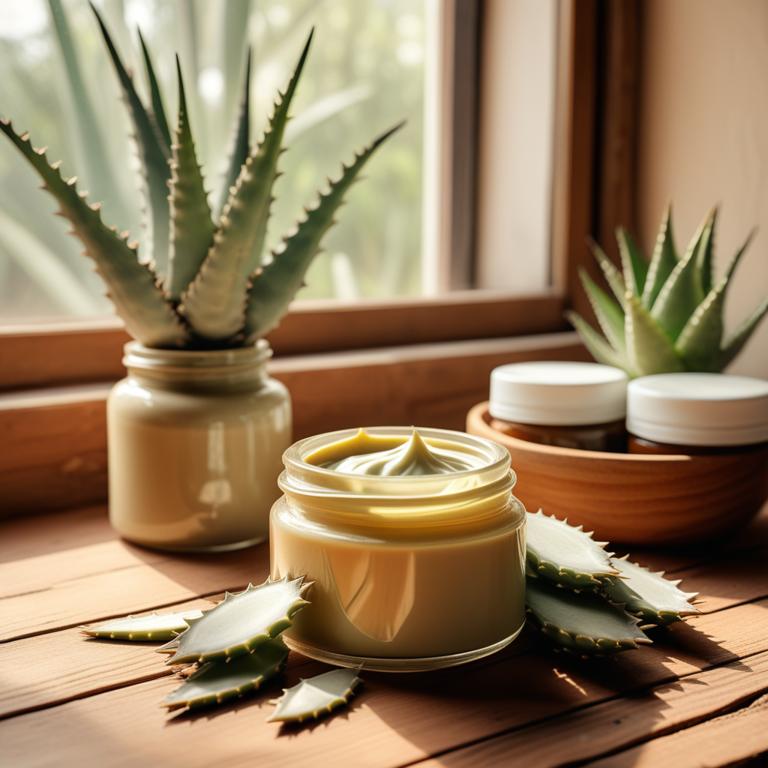
Aloe barbadensis creams contains bioactive compounds like aloin, aloe-emodin, and anthraquinones.
These compounds have anti-inflammatory properties that help reduce swelling and pain associated with arthritis. The anthraquinones also have antioxidant properties, which can help protect the joints from oxidative stress and damage. The anti-inflammatory and antioxidant properties of aloe barbadensis creams may help slow down the progression of arthritis and improve joint function.
The gel of the aloe plant contains glycoproteins and polysaccharides, which can help reduce inflammation and promote the healing of damaged tissues.
- Gather 1 cup of Aloe barbadensis gel, 1/4 cup of coconut oil, 1/4 cup of shea butter, 2 tablespoons of beeswax, and 10 drops of peppermint essential oil.
- Melt the coconut oil and shea butter in a double boiler or a heat-proof bowl set over a pot of simmering water.
- Add the melted coconut oil and shea butter to the Aloe barbadensis gel and mix well.
- Add the melted beeswax and mix until the mixture is smooth and creamy. Remove from heat and let cool for 10 minutes.
- Add the peppermint essential oil and stir well. Pour the mixture into a container and let cool completely before use.
5. Echinacea purpurea
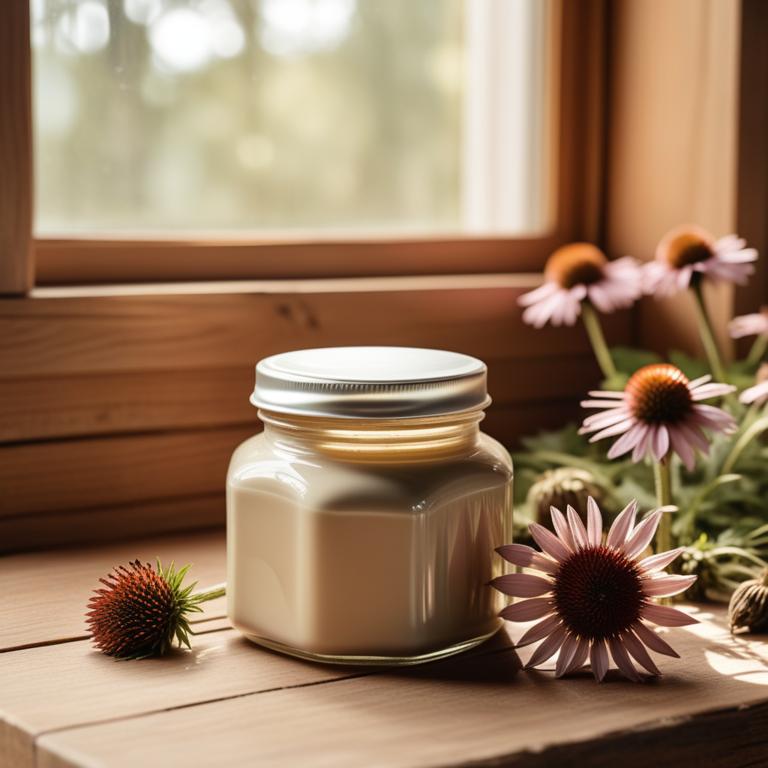
Echinacea purpurea creams contains alkylamides, glycosides, and phenolic acids as its bioactive constituents.
These compounds have anti-inflammatory properties, which help to reduce swelling and pain in the joints associated with arthritis. The alkylamides in Echinacea purpurea creams also have immunomodulatory effects, which can help to regulate the immune system's response to inflammation and promote healing. The glycosides present in the cream have antioxidant properties, which can help to protect cells from damage caused by free radicals and promote tissue repair.
The combination of these bioactive compounds in Echinacea purpurea creams may help to alleviate arthritis symptoms by reducing inflammation, promoting healing, and protecting against tissue damage.
- Gather 1 cup of dried Echinacea purpurea flowers, 1/2 cup of coconut oil, and 1/4 cup of beeswax.
- Melt the coconut oil in a double boiler or a heat-proof bowl over a pot of simmering water.
- Add 1 tablespoon of beeswax to the melted coconut oil and stir until melted.
- Add the dried Echinacea purpurea flowers to the melted mixture and let it steep for 10-15 minutes.
- Strain the mixture through a cheesecloth or a fine-mesh sieve into a clean bowl. Let it cool and harden before applying to affected areas.
6. Urtica dioica
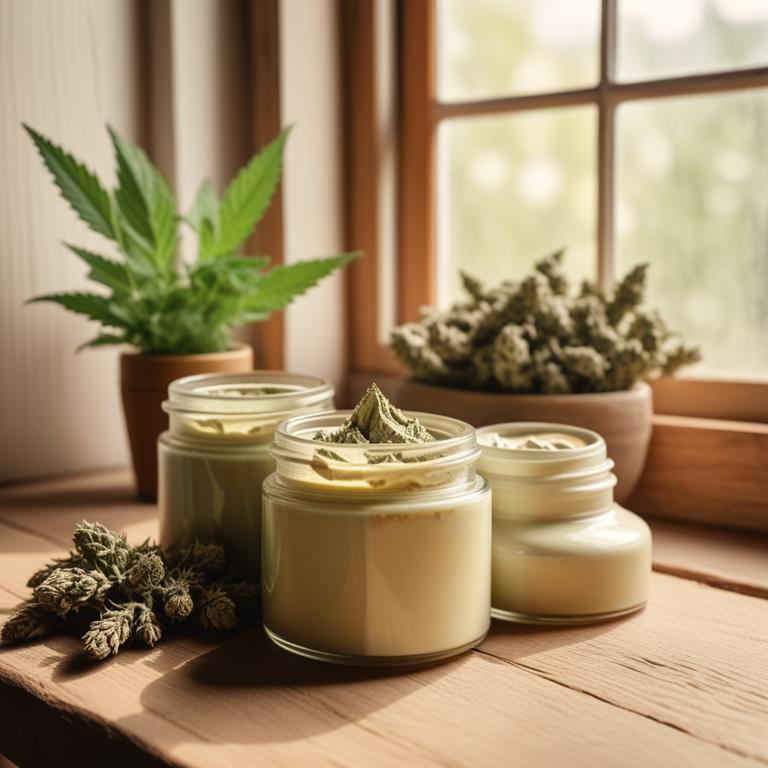
Urtica dioica creams contains bioactive constituents like histamine, acetylcholine, and phenolic acids.
These compounds have anti-inflammatory and antioxidant properties that help reduce swelling and pain in joints affected by arthritis. The antioxidants in Urtica dioica creams neutralize free radicals that can damage cells and contribute to joint inflammation. The anti-inflammatory properties of the creams help reduce joint pain and stiffness, making it easier to move and perform daily activities.
The combination of these properties makes Urtica dioica creams a potential natural remedy for arthritis symptoms.
- Gather 1 cup of fresh Urtica dioica leaves, 1 cup of coconut oil, 1/2 cup of beeswax, and 2 tablespoons of vitamin E oil.
- Dry the Urtica dioica leaves in a low-temperature oven (150°F) for 2 hours. Let them cool.
- Melt the coconut oil and beeswax in a double boiler or a heat-proof bowl set over a pot of boiling water. Stir until melted and smooth.
- Add the dried Urtica dioica leaves to the melted oil mixture and stir well. Remove from heat and let it steep for 2 hours.
- Strain the oil mixture through a cheesecloth into a clean container. Add the vitamin E oil and stir well. Pour the mixture into a cream jar and let it cool before use.
7. Capsicum annuum
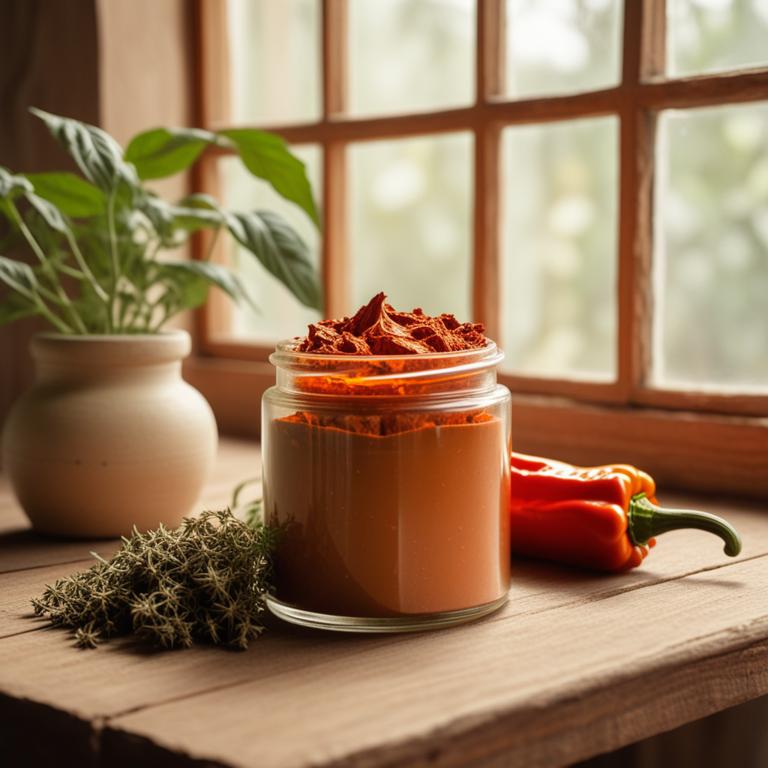
Capsicum annuum creams contains capsaicin, a bioactive constituent that helps reduce inflammation and pain associated with arthritis.
Capsaicin blocks the production of a chemical called substance P, which transmits pain signals to the brain. This reduction in pain helps to relieve stiffness and discomfort in joints, making it easier to move and perform daily activities. The anti-inflammatory properties of capsaicin also help to reduce swelling and redness in the affected joints.
Additionally, capsaicin's ability to relax muscles helps to improve range of motion and reduce muscle spasms.
- Gather 2 cups of fresh or dried Capsicum annuum peppers, 1 cup of coconut oil, 1/2 cup of beeswax, 2 tablespoons of vitamin E oil, and a double boiler.
- Combine the Capsicum annuum peppers and coconut oil in the double boiler. Heat for 2 hours, or until the mixture is smooth.
- Strain the mixture through a cheesecloth or a fine-mesh sieve into a bowl. Discard the solids.
- In a separate bowl, melt the beeswax in the microwave or in the double boiler. Add the melted beeswax to the Capsicum annuum mixture.
- Add the vitamin E oil and stir well. Pour the mixture into a container and let it cool and solidify before use.
8. Camellia sinensis
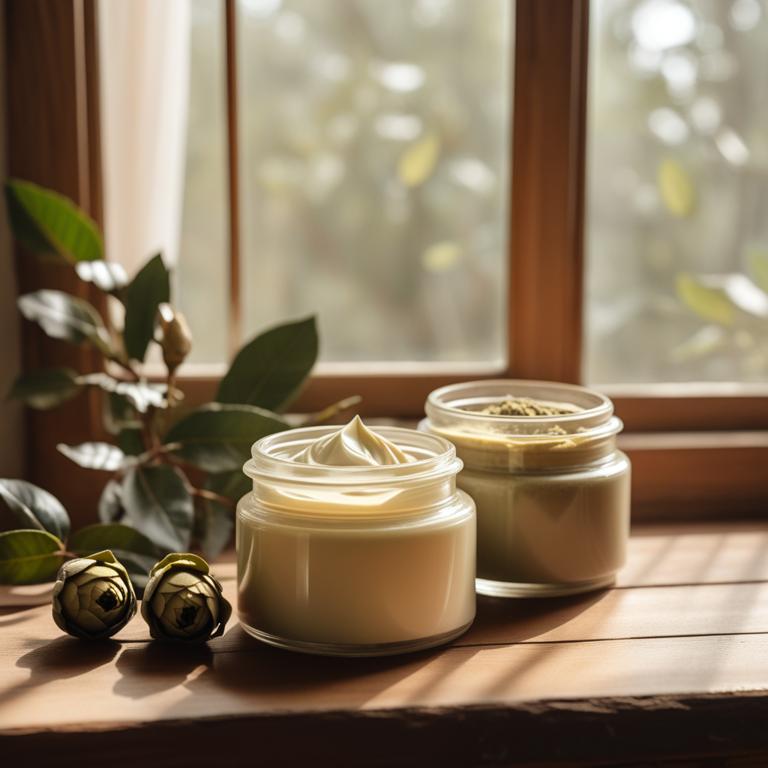
Camellia sinensis creams contains boiactive constituents such as gallic acid and theaflavins, which have anti-inflammatory properties.
These compounds help to reduce swelling and pain in the joints, making it a good option for people with arthritis. The antioxidants in Camellia sinensis creams also help to protect the joints from damage caused by free radicals, which can contribute to the progression of arthritis. Additionally, the creams contain flavonoids, which have anti-inflammatory and anti-oxidant properties, and can help to reduce the severity of arthritis symptoms.
The combination of these properties makes Camellia sinensis creams a potential natural remedy for arthritis sufferers.
- Gather 1 cup of dried Camellia sinensis leaves and 2 cups of water in a saucepan. Heat the water over low heat.
- Steep the Camellia sinensis leaves for 10-15 minutes, then strain the mixture into a bowl. Discard the leaves.
- Mix 1/2 cup of coconut oil or shea butter with the cooled Camellia sinensis liquid. Stir until well combined.
- Add 2 tablespoons of beeswax and 2 tablespoons of vitamin E oil to the mixture. Heat the mixture in a double boiler until the beeswax is melted.
- Remove the mixture from heat and let it cool. Once cooled, whip the mixture until it becomes light and fluffy. Pour into a container and store in a cool place.
9. Hypericum perforatum
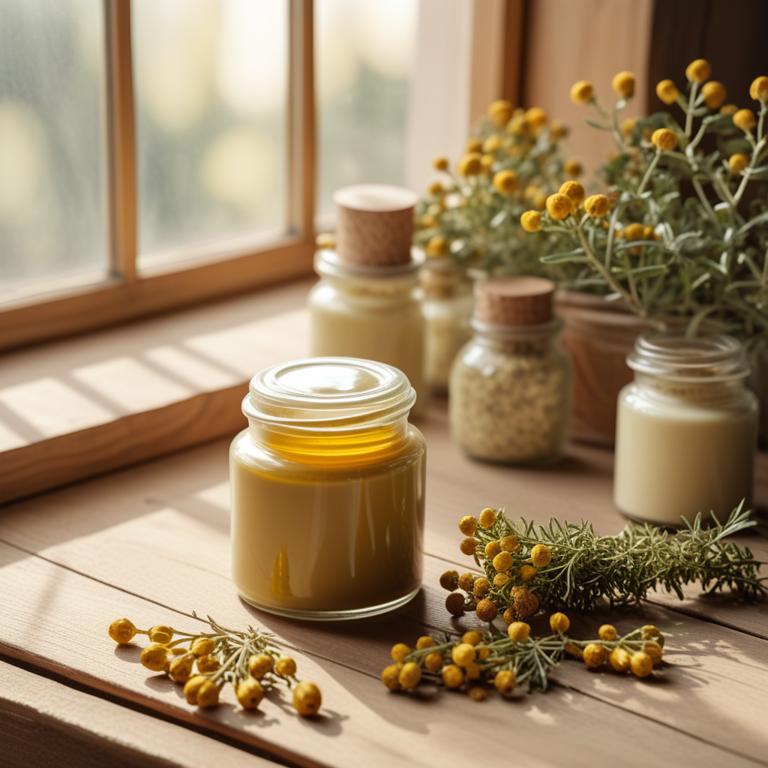
Hypericum perforatum creams contains flavonoids, such as quercetin and kaempferol, and naphthoquinones, including hyperforin and hypericin.
These compounds have anti-inflammatory and antioxidant properties, which help reduce joint pain and swelling associated with arthritis. The flavonoids in Hypericum perforatum creams have been shown to inhibit the production of pro-inflammatory enzymes, such as COX-2 and 5-LOX, which contribute to joint damage and inflammation. The antioxidant properties of the naphthoquinones help protect cells from oxidative damage, which can exacerbate arthritis symptoms.
By reducing inflammation and oxidative stress, Hypericum perforatum creams may provide relief from arthritis symptoms and improve joint health.
- Gather 1 cup of dried Hypericum perforatum flowers, 1/2 cup of coconut oil, and 1/4 cup of beeswax.
- Heat the coconut oil in a double boiler until it reaches 120°F to 140°F.
- Add the dried Hypericum perforatum flowers to the coconut oil and let it steep for 2 to 3 hours.
- Strain the mixture through a cheesecloth or a fine-mesh sieve into a bowl, discarding the solids.
- Combine the strained mixture with 1/4 cup of melted beeswax and mix well until the beeswax is fully incorporated.
10. Calendula officinalis

Calendula officinalis creams contains triterpenoids, saponins, and flavonoids as key bioactive constituents.
These compounds have anti-inflammatory and antioxidant properties, which can help reduce joint pain and inflammation associated with arthritis. The flavonoids in Calendula officinalis also have a role in inhibiting the production of pro-inflammatory enzymes, further contributing to its potential benefits for arthritis sufferers. The saponins in Calendula officinalis have been shown to have analgesic and anti-pyretic effects, helping to alleviate pain and reduce fever.
By reducing inflammation and alleviating pain, Calendula officinalis creams may provide relief for people with arthritis, making it a popular natural remedy for this condition.
- Gather 1 cup of dried Calendula officinalis flowers, 1/2 cup of coconut oil, 1/4 cup of beeswax, 2 tablespoons of shea butter, and 2 tablespoons of vitamin E oil.
- Combine coconut oil, beeswax, and shea butter in a double boiler. Heat until beeswax melts.
- Add dried Calendula officinalis flowers to the melted mixture and let it steep for 2 hours.
- Strain the mixture through a cheesecloth or a fine-mesh sieve into a clean bowl. Discard the flowers.
- Add vitamin E oil to the mixture and stir well. Pour the mixture into a container and let it cool and set.
FAQ
Can drinking herbal tea prevent arthritis from forming?
Drinking herbal tea may help prevent arthritis from forming, but more research is needed to confirm this.
Some herbal teas, like ginger and turmeric tea, contain anti-inflammatory properties that could help reduce joint pain and swelling.
These teas might also help slow down cartilage loss, a common cause of arthritis.
Is it safe to consume herbal teas for arthritis every day?
While herbal teas can be a helpful addition to your arthritis treatment, consuming them daily can be a concern.
Some herbs can interact with medications or have side effects if taken excessively. For example, ginger can cause stomach upset if taken in large amounts.
It's best to use them in moderation, following package instructions and listening to your body's response.
How long does it take for herbal teas to show results in arthritis?
Herbal teas can help with arthritis symptoms, but it's not a quick fix.
It may take a few days to a week to notice any improvements. Some people may feel relief from pain and stiffness within a week, but it can take longer for others.
It's a gradual process, and consistency is key.
Related Articles

Causes of Joint Pain and Natural Relief through Medicinal Herbs and Preparations
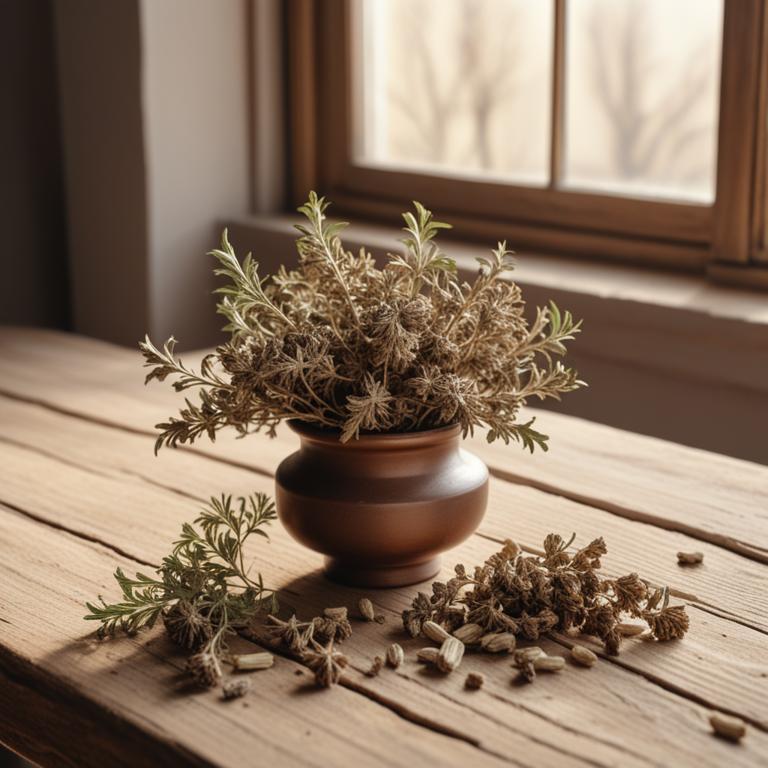
Difficulty Chewing: Understanding the Causes and Medicinal Herbs
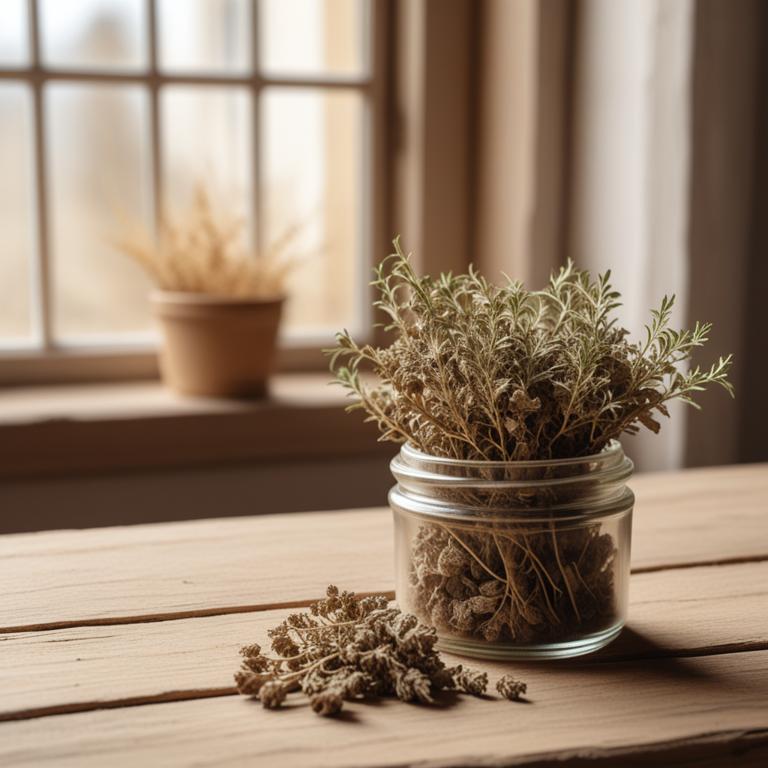
The Causes and Effects of Rheumatoid Arthritis and Herbal Preparations
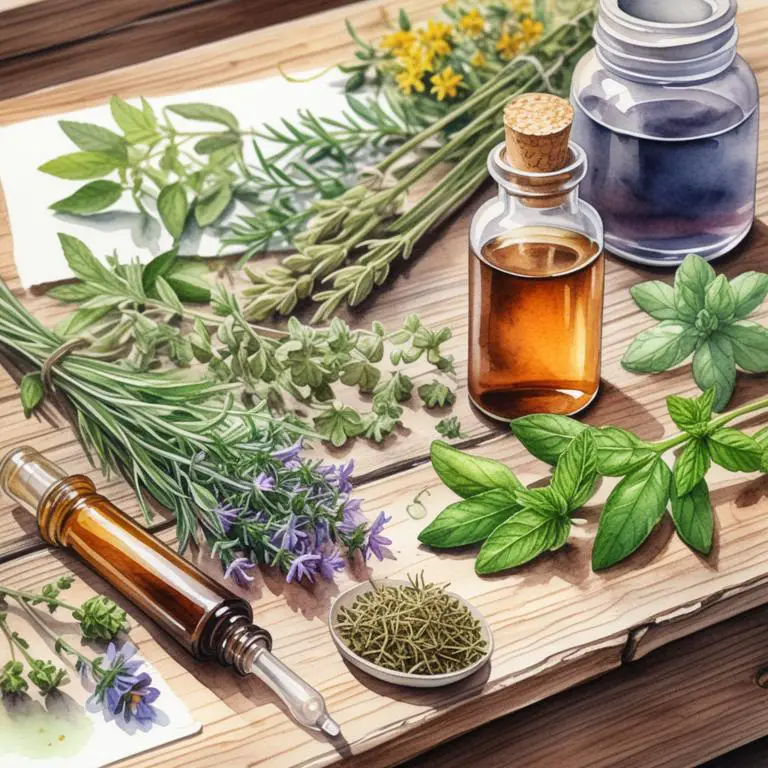
Natural Stiff Neck Remedies: Causes and Herbal Preparations
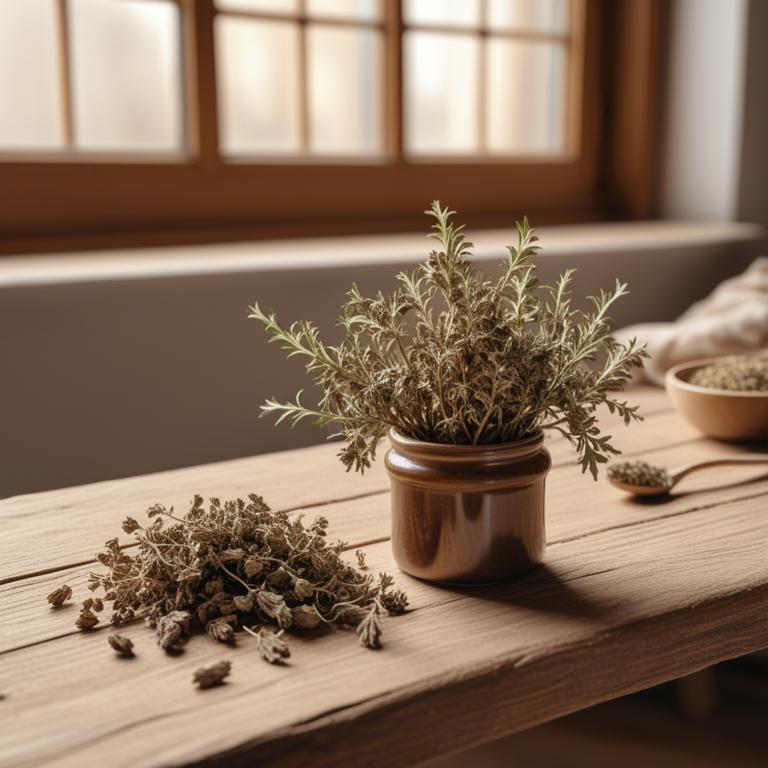
Bone Health: A Comprehensive Guide to Causes and Herbal Preparations
